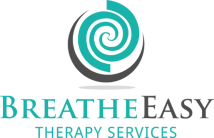Summer’s ending can mean different things to different folks. Parents prepare in a frenzy for the school year, attending open houses and last-minute shopping. For others, the end of summer can mean increased morning commutes or a recommitment to health goals whose pursuit waned for more exciting summer barbecues, vacations, and trips to the local ice cream shop.
For parents and wayward exercisers, fall can be a time to reset before heading into the stressful holidays.
What better way to get a reset than by establishing a routine?
Research shows that adhering to a routine can affect every aspect of life, especially for children. An after-school routine can be a family dinner, playtime, bath, books, brushing teeth, and laying in bed until the Sandman comes.
Establishing a routine like this offers benefits today and for years to come.
For instance, researchers have found that adhering to a routine helps prevent childhood obesity and positively affects a child’s emotional and behavioral regulation. As if those benefits weren’t enough, additional research shows that bedtime routines can increase a child’s working memory, attention, and inhibition. A study by researchers Kitsaras et al. (2018) found children were more ready for school and had better dental health if they lived in a household with optimal bedtime routines.
Researchers also found that predictable routines for children at home were better at handling uncertainty than adults. Conversely, children with chaotic environments were more likely to become more easily overwhelmed and delayed in making decisions.
Routines benefit adults too!
Studies have shown that adults who follow a routine that includes exercise, eating the same foods, and not skipping meals are more likely to be healthier and maintain a healthier weight. A nighttime routine that includes journaling, stretching, meditation, and breathing exercises can help pave the way to dreamland.
While the benefits of routines are undeniable, grace is our greatest ally while adopting them. For instance, a recent study found that it took adults anywhere from 18 to 254 days to establish a healthcare routine that becomes automatic.
Too many changes and too fast often don’t work, so make sure you work patience into your new routine, too!
References
Arlinghaus, K. R., & Johnston, C. A. (2018). The Importance of Creating Habits and Routine. American journal of lifestyle medicine, 13(2), 142–144. https://doi.org/10.1177/1559827618818044
Hart, C. N., Jelalian, E., & Raynor, H. A. (2020). Behavioral and social routines and biological rhythms in prevention and treatment of pediatric obesity. American Psychologist, 75(2), 152–162. https://doi.org/10.1037/amp0000599
Kitsaras, G., Goodwin, M., Allan, J., Kelly, M. P., & Pretty, I. A. (2018). Bedtime routines child wellbeing & development. BMC public health, 18(1), 386. https://doi.org/10.1186/s12889-018-5290-3
Yan, Y., Zhang, J., & Dong, S. (2021). Influence of Childhood Family Routines on Adult Depression: A Cross Sectional Study. Frontiers in psychology, 12, 654433. https://doi.org/10.3389/fpsyg.2021.654433





